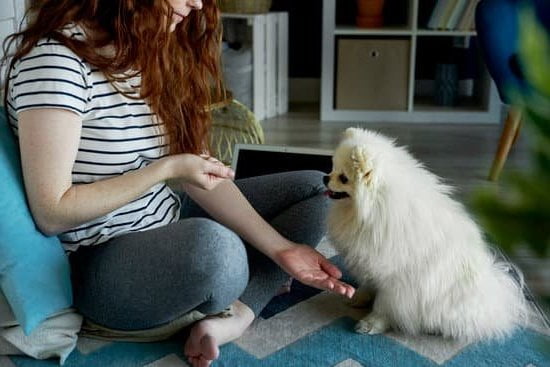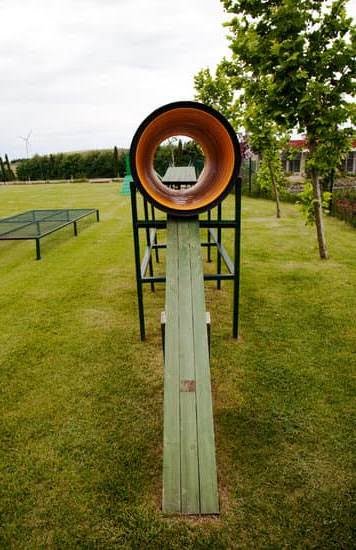How old can you start training a dog? Training a puppy is essential for their development and behavior. Starting early sets the foundation for a well-behaved dog in the future. Puppies are like sponges, eager to learn and please their owners. This article will delve into the importance of early training for puppies, the ideal age to start training, basic obedience training, behavioral training, and the benefits of starting training early.
During their developmental stages from puppyhood to adulthood, dogs go through critical learning phases that greatly impact their behavior as adults. It is crucial to understand these stages to provide appropriate training and guidance. The first few months of a puppy’s life are particularly important as they are highly impressionable and receptive to new experiences. This makes it an ideal time to begin instilling good habits and behaviors through consistent training.
The ideal age to start training a dog is typically around 8-10 weeks old when they have settled into their new home environment. However, it is never too late to start training a dog, even if they are older. Basic obedience training such as sit, stay, come, and leash walking should be introduced gradually with positive reinforcement techniques.
Behavioral training like potty training, crate training, and socialization are also essential for a well-rounded pet. By starting training early, both the dog and the owner can enjoy a harmonious relationship built on trust and clear communication.
The Development Stages of a Dog
Dogs go through various developmental stages as they grow from a playful puppy to a well-mannered adult companion. Understanding these stages and their corresponding behaviors is crucial in establishing a strong foundation for training. From the early socialization period to adolescence, each stage presents unique challenges and opportunities for training.
Here are the key development stages of a dog from puppyhood to adulthood:
- Neonatal Stage (0-2 weeks): At this stage, puppies are completely dependent on their mother for warmth, nutrition, and care. They are unable to see or hear and spend most of their time sleeping.
- Transitional Stage (2-4 weeks): Puppies start to become more aware of their surroundings and begin to move around. They also start to develop their senses of sight and hearing.
- Socialization Stage (3-12 weeks): This is a critical period for puppies to learn how to interact with other dogs, animals, and people. Early socialization plays a significant role in shaping a dog’s behavior later in life.
- Juvenile Stage (3-6 months): Puppies start teething during this stage, which may lead to chewing behaviors. They are highly energetic and curious, making it essential to provide them with plenty of mental and physical stimulation.
- Adolescent Stage (6-18 months): Dogs reach sexual maturity during this stage and may exhibit some rebellious behaviors. Consistent training and positive reinforcement are crucial in guiding them through this challenging period.
- Adulthood (>1 year): By the age of one year, most dogs have reached adulthood. They have established their personalities but can continue learning new skills throughout their lives.
Knowing the developmental stages of your dog can help you tailor your training approach accordingly. Starting training early in your dog’s life can set the tone for successful obedience training and behavioral development later on. Be patient, consistent, and use positive reinforcement methods when working with your dog at every stage of its development.
By understanding the different milestones from puppyhood to adulthood, pet owners can better anticipate their furry friend’s needs throughout each phase. Whether teaching basic commands or addressing specific behavioral issues, adapting training techniques according to your dog’s developmental stage will foster a strong bond based on trust and communication.
The Ideal Age to Start Training a Dog
Puppies begin learning from the moment they are born, so the question of “how old can you start training a dog” is an important one for pet owners to consider. While it is never too late to start training a dog, early training has numerous benefits for both the puppy and their owner.
The ideal age to start training a dog is as early as 7-8 weeks old. This is when puppies are most receptive to learning and adapting to new experiences.
Starting training at this young age helps set the foundation for good behavior and obedience later on in life. Puppies go through various developmental stages from infancy to adulthood, with critical socialization periods happening between 7-16 weeks of age.
During this time, puppies are more open to new experiences and can quickly learn what behaviors are appropriate or not. By starting training during this period, you can help your puppy develop into a well-mannered and socially adjusted adult dog.
Basic obedience training is usually the first step when starting to train a young puppy. Commands such as sit, stay, come, and leash walking are essential for building communication between the puppy and owner. Behavioral training like potty training, crate training, and socialization also play a crucial role in shaping a puppy’s behavior.
Consistency, positive reinforcement, and patience are key when it comes to successfully training a young puppy. Remember that every dog is different, so it’s important to tailor your training methods to suit your individual pup’s needs and personality.
Basic Obedience Training for Puppies
Puppies are like sponges when it comes to learning, and starting their training at the right age can set them up for a lifetime of good behavior. One common question among new dog owners is how old they can start training a dog.
In general, puppies can start learning basic obedience commands as early as 8 weeks old. However, it’s important to keep in mind that each puppy is different, and some may be ready to start training a bit earlier or later.
When it comes to basic obedience training for puppies, consistency is key. Here are some essential commands that you can start teaching your puppy at a young age:
- Sit: Teaching your puppy to sit is one of the first commands you should focus on. It’s a foundational command that can help with impulse control and calm behavior.
- Stay: The stay command teaches your puppy self-control and patience. Start with short durations and gradually increase the time as your puppy gets more comfortable.
- Come: A reliable recall command is crucial for your puppy’s safety. Practice this command in a safe and enclosed area until your puppy responds consistently.
In addition to these basic commands, it’s important to make training sessions fun and positive for your puppy. Use rewards like treats, toys, or verbal praise to reinforce good behavior. Be patient with your puppy as they are still learning how to navigate the world around them. Remember that training takes time and consistency, so don’t get discouraged if progress is slow at first.
Avoid common mistakes such as using punishment-based techniques or expecting too much from your young puppy too soon. Keep training sessions short and engaging to prevent burnout and maintain your puppy’s interest. By starting early with basic obedience training, you are laying the foundation for a well-behaved and obedient companion for years to come.
Behavioral Training for Puppies
Puppies require a different approach when it comes to training compared to adult dogs. One of the common questions that new dog owners often ask is “How old can you start training a dog?” The answer varies depending on the breed and individual development, but in general, it is recommended to start training puppies as early as 8 weeks old. This is because puppies are like sponges during this stage of their life and can quickly learn new behaviors.
When it comes to behavioral training for puppies, there are three key areas to focus on: potty training, crate training, and socialization. Potty training is essential for teaching your puppy where and when to relieve themselves. Crate training helps provide your puppy with a safe space and can aid in housebreaking. Socialization is crucial for ensuring your puppy grows up to be a well-adjusted adult dog who can interact with other animals and humans positively.
Starting these behavioral training techniques early can set a strong foundation for your puppy’s future behavior. Consistency is key when it comes to training, so make sure to establish routines and stick to them. Remember that positive reinforcement works best with puppies, so be sure to praise and reward good behavior. With patience and dedication, you can help your puppy grow into a well-behaved and happy companion.
| Topic | Key Points |
|---|---|
| Training Start Age | Recommended start at 8 weeks old; varies by breed |
| Areas of Focus | Potty Training, Crate Training, Socialization |
| Training Techniques | Consistency, Positive Reinforcement, Patience |
The Benefits of Starting Training Early for Both the Dog and the Owner
Establishing a Strong Bond
Starting training early with your puppy not only helps in shaping their behavior but also strengthens the bond between the dog and the owner. By consistently working together on training exercises, you are establishing a relationship built on trust, communication, and understanding. This bond will lay the foundation for a harmonious coexistence as your puppy grows into adulthood.
Promoting Mental Stimulation
Training sessions provide puppies with mental stimulation that is crucial for their development. Engaging in various obedience and behavioral training exercises challenges their minds and keeps them active and alert. This mental stimulation can prevent boredom, anxiety, and destructive behaviors often seen in dogs that lack proper training and mental exercise.
Building Confidence and Social Skills
Early training exposes puppies to different environments, people, animals, and situations, helping them build confidence and social skills. Teaching your puppy basic commands and rules at a young age instills a sense of control over their surroundings and boosts their self-confidence. Additionally, proper socialization during training can prevent fear or aggression towards other dogs or people in the future. Starting training early sets the stage for a well-adjusted, confident, and well-socialized adult dog.
Tips for Successful Training Sessions With a Young Puppy
Starting Early: The Key to Successful Training
Training a dog from a young age is essential for setting a solid foundation for their behavior and obedience. Puppies are like sponges, soaking up new information and experiences rapidly. By starting training early, you can shape their behavior positively and help them become well-adjusted adult dogs. The learning process is easier for puppies compared to older dogs, making it crucial to begin training as soon as they join your family.
Short and Fun Sessions
When training a young puppy, it’s important to keep the sessions short and engaging. Puppies have short attention spans, so aim for training sessions that last no longer than 10-15 minutes at a time. Use positive reinforcement such as treats or praise to motivate your puppy during training. Make the sessions fun by incorporating playtime and interactive games into the mix. Keeping the training light-hearted and enjoyable will help your puppy stay engaged and eager to learn.
Consistency Is Key
Consistency is vital when training a young puppy. Establish clear rules and boundaries from the start and ensure that everyone in the household follows them consistently. Use the same commands and gestures each time you train your puppy to avoid confusion.
Consistent training will help your puppy understand what is expected of them and reinforce good behavior over time. Remember that patience is key when working with a young puppy – they are still learning about the world around them, so be patient and understanding during the training process.
Common Mistakes to Avoid When Training a Young Puppy
The answer is that the ideal age to begin training a puppy is as early as 8 weeks old. This is because puppies are like sponges during this stage of their development and are more receptive to learning new behaviors.
One common mistake that pet owners make when training a young puppy is being inconsistent with commands and expectations. It’s essential to establish clear rules and boundaries from the beginning and consistently enforce them. This helps prevent confusion for the puppy and ensures that they understand what is expected of them.
Another mistake to avoid is using punishment-based methods during training sessions. Positive reinforcement techniques, such as treats, praise, and play, are much more effective in encouraging good behavior in puppies.
Additionally, one mistake to steer clear of when training a young puppy is expecting too much too soon. Puppies have short attention spans and limited impulse control, so it’s crucial to keep training sessions short (5-10 minutes) and frequent throughout the day.
Remember that patience is key when working with puppies, as they are still learning about the world around them and may not always get things right on the first try. By avoiding these common mistakes and focusing on positive reinforcement techniques, you can set your puppy up for success in their training journey.
Conclusion
Training a dog from a young age is crucial in shaping their behavior and ensuring a strong bond between the owner and the pet. The question of “how old can you start training a dog” is one that many new pet owners ponder, and the answer is clear – the earlier, the better. From basic obedience commands to behavioral training, starting early sets the foundation for a well-behaved and happy companion.
As puppies go through various developmental stages from puppyhood to adulthood, each phase presents unique opportunities for learning and growth. It is essential to identify the ideal age to start training, which typically begins as early as 8 weeks old. Basic obedience training such as sit, stay, come, and leash walking can be introduced during this time to instill good habits early on.
Beyond basic commands, behavioral training plays a crucial role in shaping a well-rounded dog. Potty training, crate training, and socialization are all vital aspects of a puppy’s development that should be addressed early on.
By starting these training methods at a young age, owners can prevent future behavioral issues and foster a strong bond with their furry friend. Ultimately, by setting your puppy up for success through early training, you are paving the way for a lifetime of good behavior and companionship between you and your four-legged companion.
Frequently Asked Questions
What Is the Best Age to Train a Dog?
The best age to train a dog is generally considered to be during puppyhood, ideally between 8 and 16 weeks old. This is when puppies are most receptive to learning new behaviors and forming positive habits that will last a lifetime.
What Is the First Thing You Should Train Your Puppy?
The first thing you should train your puppy is basic obedience commands such as sit, stay, come, and down. These commands serve as the foundation for further training and help establish a line of communication between you and your puppy. Consistency and positive reinforcement are key in this early stage of training.
What Age Is Too Late to Train a Puppy?
It’s never too late to train a puppy, but the ideal window for training begins to close around six months of age. After this point, puppies may have already started developing undesirable behaviors that can be more challenging to correct. However, with patience, consistency, and the right approach, older puppies can still learn new tricks and behaviors effectively.

Welcome to the blog! I am a professional dog trainer and have been working with dogs for many years. In this blog, I will be discussing various topics related to dog training, including tips, tricks, and advice. I hope you find this information helpful and informative. Thanks for reading!





